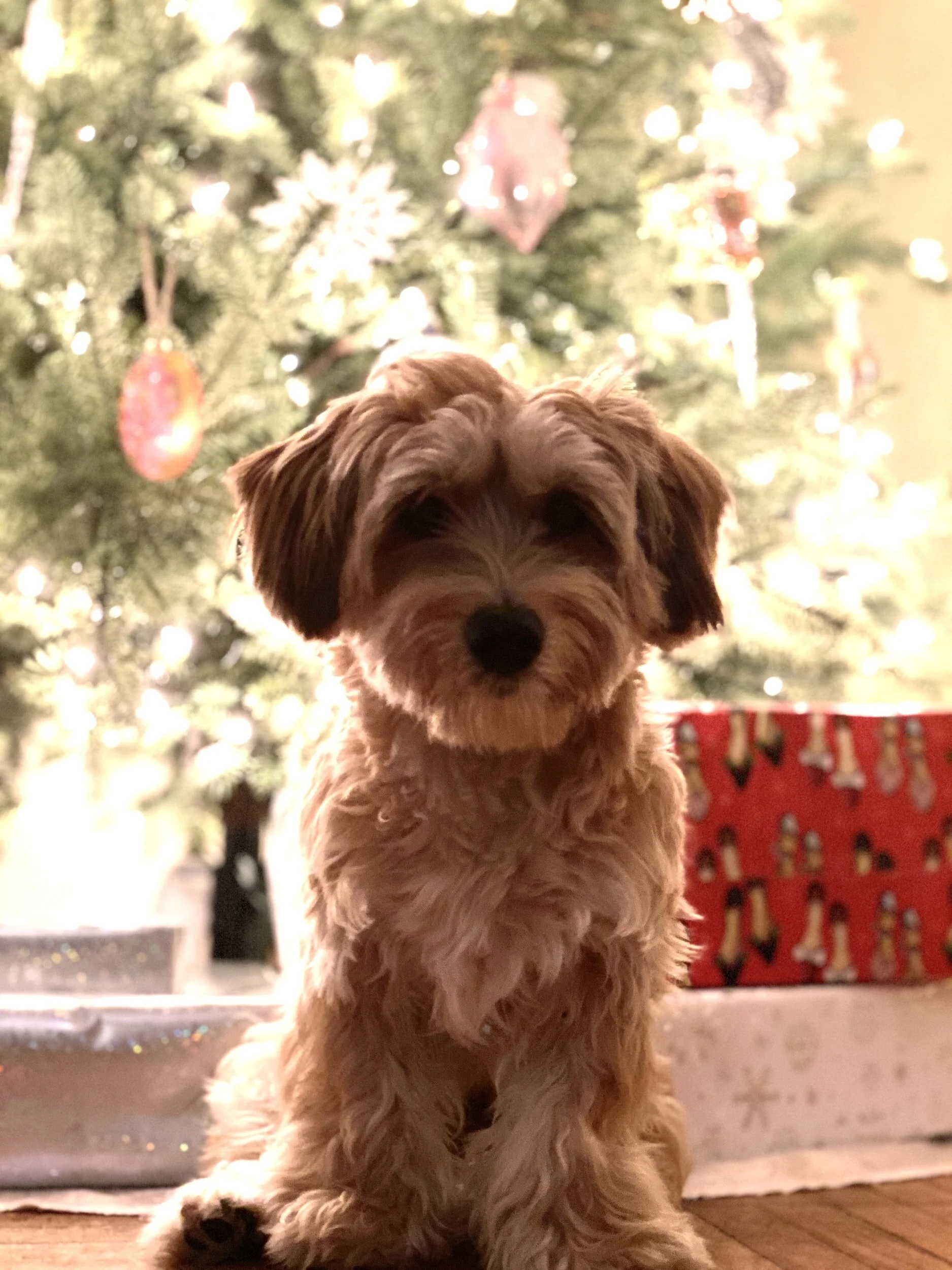What can I feed my pet at Christmas?
Christmas is a special time of year that we like to share with loved ones, including our pets. To make our pets feel special, you may think about giving them a treat or their very own Christmas dinner. However, not all human foods are safe for pets, so a sneaky treat or special meal can quickly turn into an upset tummy, excessive wind or a visit to the vet.
Before giving a food treat to your pet, consider giving them a gift instead. A new toy or quality time with you such as play time, cuddle time or a walk to burn off some of those extra calories that you have consumed throughout the day can be just as rewarding for your furry friend.
If you do decide to give your pet a food treat, keep in mind the following:
CHECK our list below to ensure you don’t feed your pet anything toxic or fatty. Not all festive foods are pet friendly.
DON’T feed them a big Christmas meal or give them too much, the smallest amount can be a big treat in your pet’s eyes
INCLUDE the treats that you offer in their overall calorie intake for the day. This may involve reducing their usual meal to balance out their daily calorie allowance.
OFFER their treat after your meal to avoid them getting into bad habits and expecting a treat every time you have a roast dinner.
What can your dog or cat eat at Christmas?
It is safe for your dog or cat to have a small portion of some of the following as a festive treat:
Turkey – lean parts of white turkey meat, plain and boneless
Carrots – plain, boiled or mashed, with no extras like butter, salt or onion
Swede – plain, boiled or mashed, with no extras like butter, salt or onion
Parsnips – plain, boiled without glaze or oil
Brussel sprouts – plain, boiled or steamed, no sauce
Broccoli – plain, boiled or steamed, no sauce
Cauliflower - plain, boiled or steamed, no sauce
Green beans – plain, boiled or steamed
Peas – plain, boiled, steamed or mashed
Spinach – plain, boiled, wilted or raw
Foods to avoid feeding your dog or cat at Christmas
Any food with a high salt or fat content can not only cause your dog or cat to become overweight, it can also give them tummy upsets or excessive wind. As a result, the following foods should be avoided:
Vegetables - roasted or fried in fat or butter
Sauces – cheese, cranberry
Skin from turkey or chicken
Bacon
Desserts
For more information about tummy upsets and when to see the vet visit our article here.
Toxic foods that should never be fed to dogs or cats
Some foods are dangerous to dogs and cats as they are either poisonous or a choking hazard. These foods should never be fed to your pet:
Turkey or chicken bones – whether they are raw or cooked, bones are a choking hazard.
Garlic, onion, chives and leeks - are in the Allium family and are poisonous to both dogs and cats if too much is eaten. These common ingredients are often found on the festive dinner table and can be hidden in gravy and stuffing so avoid giving these to your pet for a treat.
Mince pies & Christmas pudding - Grapes, raisons, currants and sultanas are toxic to dogs. Many Christmas desserts such as mince pies and Christmas pudding are rich in these ingredients so keep them away from your furry friends.
Alcohol - Alcohol can cause severe liver, kidney and brain damage in animals. As little as a tablespoon can lead to problems for your pet so keep it out of reach.
Chocolate – in all forms, especially dark or cooking chocolate. Symptoms of chocolate poisoning include vomiting, diarrhoea, rapid breathing, increased heart rate, tremors and seizures.
Sweets – many lollies and sugar free treats that contain xylitol are toxic to pets. Such poisoning can lead to lethargy, loss of balance, permanent brain damage, liver failure and death
Macadamia nuts - Macadamia nuts are often found at Christmas time in cookies, cakes and other indulgent treats. However, they are not safe for dogs. Even a small amount of these nuts can cause severe symptoms including vomiting, ataxia, weakness, fever and muscle tremors. So if you are thinking of giving you pooch just a little taste, don’t!
If you suspect your pet has swallowed something toxic or is displaying signs of poisoning, contact us immediately on 03 8784 4444.
We hope you have a Merry Christmas and a safe and happy New Year. If you have any questions about your pet’s health or safety, please give us a call on 03 8784 4444.



